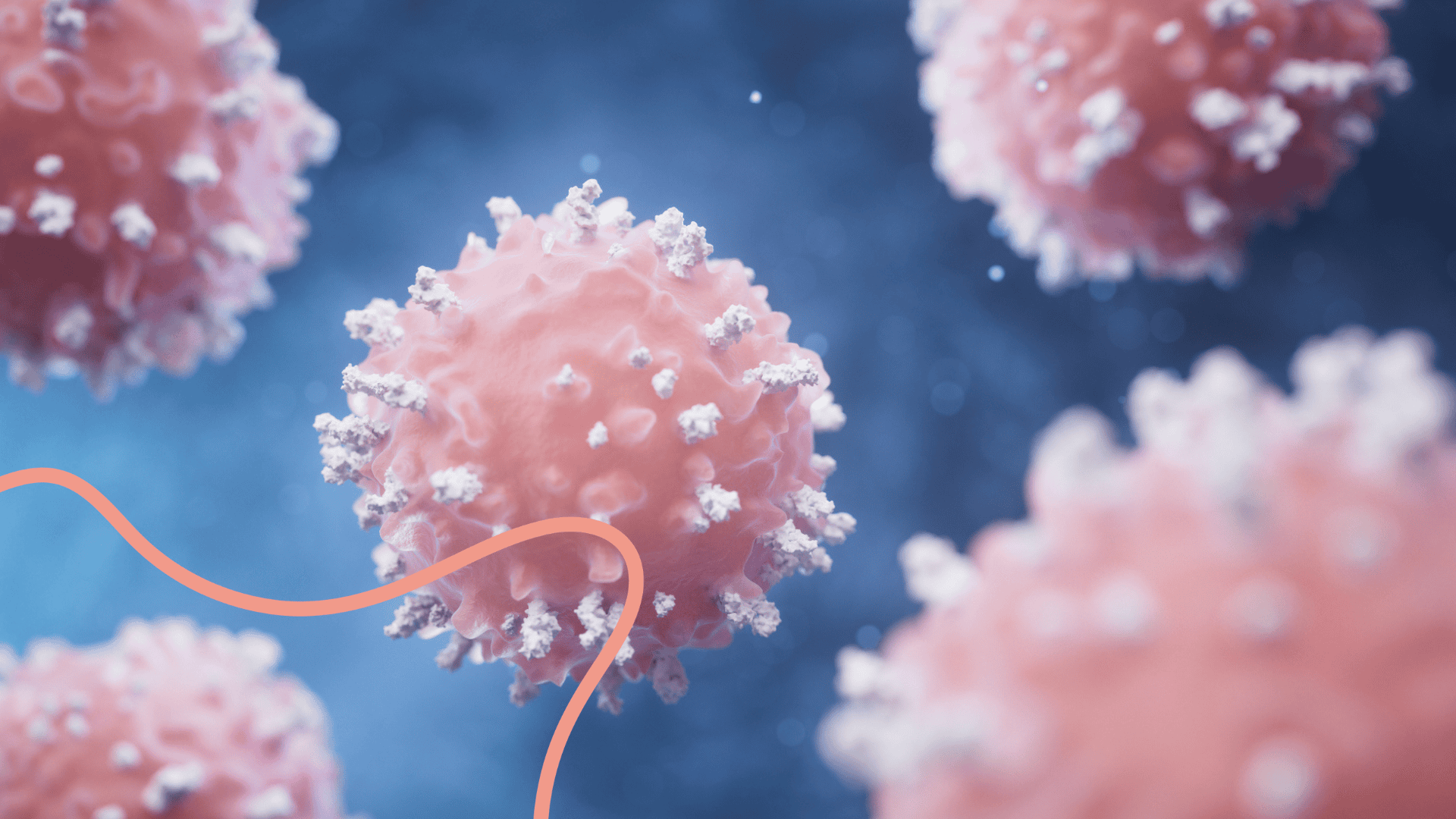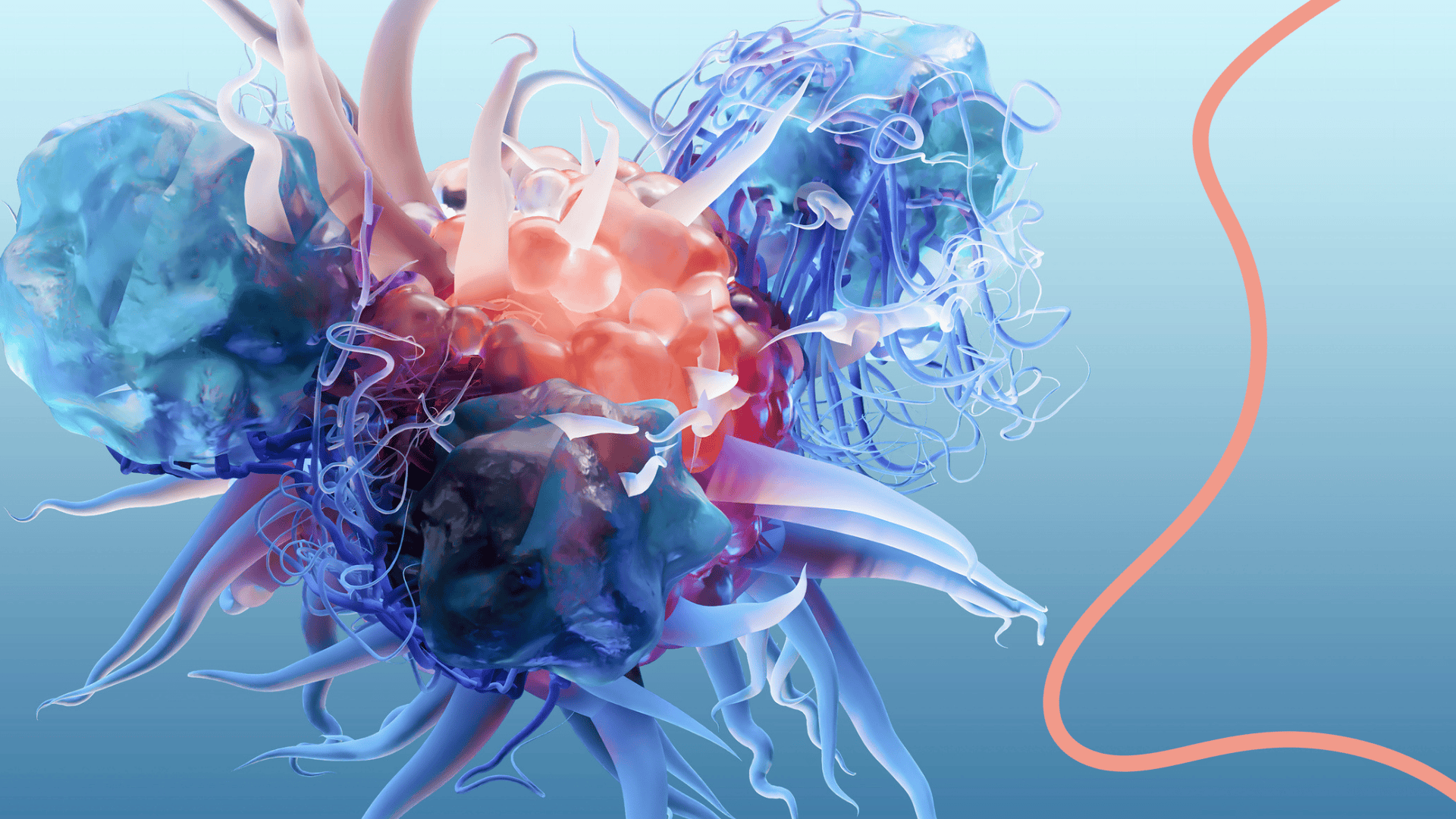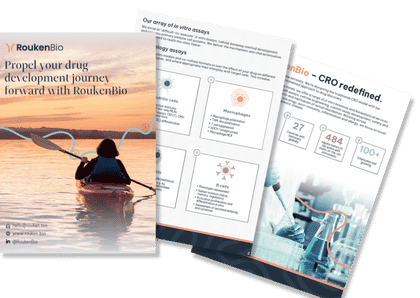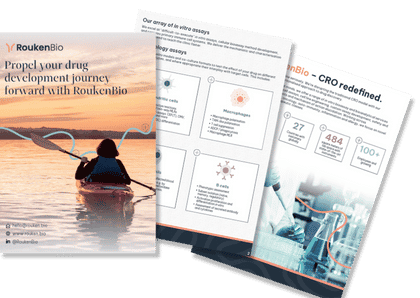Celebrating the Day of Immunology: Reflections from the RoukenBio Team
On World Immunology Day, we celebrate the passion and purpose that drive our team at the Rouken Discovery Centre, honouring the science behind every assay, breakthrough, and the immune system’s incredible potential to change lives.

|
April 21, 2025
|
6 min read
Every year on 29th April, the Day of Immunology is celebrated globally to raise awareness of the essential role immunology plays in combating infectious diseases, allergy, autoimmunity, cancer, and more. As an Immunology CRO, this day holds a special place in our hearts and our labs in the Rouken Discovery Centre.
To mark the occasion, we asked our team – from lab scientists to leadership – what immunology means to them. Their reflections are a reminder that behind every immunology assay, data set, and clinical milestone is a deep passion for the science of the immune system and its power to transform lives.
Scottish Influence in Early Immunology and Neurology
Scotland has played a pivotal role in advancing our understanding of both the immune system and the brain, shaping how we approach health and disease today. As Katie Monaghan, one of our brilliant Customer Success Managers, shared, the Day of Immunology serves as a perfect moment to reflect on Scotland’s scientific legacy, especially in light of this year’s theme: "Brain and Immunity: Immunological Insights into Neurological Disorders."
One of the early pioneers in immunology, Sir Robert Muir, made ground-breaking contributions to our understanding of the antibody-complement system, laying the foundation for how we study immune responses today. William Leishman further bolstered Scotland’s scientific reputation with his work in tropical diseases, particularly through the development of the Leishman stain, a diagnostic tool still used in identifying infectious diseases.
In the realm of neurology, Sir William Macewen, often called the father of modern neurosurgery, was among the first to perform successful brain surgeries in the late 19th century. His work at the University of Glasgow helped establish the foundations of modern brain research. This legacy continued with the creation of the Glasgow Coma Scale, developed by Sir Graham Teasdale and Professor Bryan Jennett; a clinical tool that remains globally vital in assessing brain injuries.
Scotland’s influence also extends to pharmacology, with Nobel Laureate Sir James Black. While best known for developing beta-blockers and H2-receptor antagonists, his work significantly impacted how we understand drug interactions with immune system pathways, bridging the gap between pharmacology and immunology.
These contributions remind us that Scotland has long stood at the forefront of innovation in both immunological and neurological sciences. As an Immunology CRO based in Scotland, we’re deeply proud of these roots, and even more excited about what the future holds.
As Katie Monaghan reflects:
"Today, as we unravel how the immune system shapes brain health, from multiple sclerosis to neurodegeneration, we stand on the shoulders of pioneers like Sir William Macewen or Sir James Black, who believed in the power of both science and bold ideas."
Immunology Today
Immunology today is one of the most dynamic and impactful fields in biomedical science, sitting at the heart of breakthroughs in vaccines, cancer therapies, autoimmune disease treatments, and infectious disease research. From harnessing the immune system to fight cancer with immunotherapies, to developing mRNA vaccines at record speed, the field continues to transform how we understand and treat human disease and as a CRO specialising in immunological research, we are proud to contribute to this global effort.
Today, Scotland continues to make strides in combining the fields of immunology and neurology. Researchers are exploring the links between chronic inflammation and depression, multiple sclerosis, Alzheimer's disease, and the role of neuroinflammation in conditions like Zika virus infection. These efforts underscore Scotland's ongoing commitment to advancing medical science and improving global health.

We asked some of our lead scientists from the Immunology Department about what makes the field exciting for them. Dr. Robert Benson, our Director of Immunology said:
"While the dynamic spatiotemporal nature of the immune system makes its study and modelling incredibly complex, the interactions between its cells, chemical mediators and tissues are as fascinating as they are vital to our understanding of health and disease. Harnessing these complexities continues to open exciting new opportunities to transform how we tackle disease."
As our knowledge of the immune system deepens, so too does our ability to design precise, personalised treatments that improve lives around the world, and this is a deeply rewarding aspect of the work for our scientists. This was backed up fully by one of our Associate Directors of Immunology, Dr Shatakshi Sood, who added:
"Immunology’s path from bench to bedside is anything but linear – but in its complexity lies the spark for true innovation. It’s a privilege to help drive transformative breakthroughs in medicine."
Recent progress in systems immunology, single-cell sequencing, and computational modelling has enabled unprecedented insights into immune regulation and dysfunction. These advances are shaping the development of next-generation biologics, cell and gene therapies, and precision immunomodulatory strategies, marking a new era of immune-targeted therapeutics. Dr Gavin Meehan, also an Associate Director of Immunology, shared:
"Immunotherapies are arguably the future of medicine. Better understanding and harnessing the immune system is leading to better treatments and is saving lives. It is very rewarding to be at the forefront of immunology research."
Our amazing CSM, Julie McMahon highlighted the importance of research and work carried out by CROs which translate to impact patients’ lives.
"On world Immunology Day, I feel it’s important to reflect on the impact CROs like RoukenBio have on the patient pathway. It’s inspiring to see scientists innovating new ways and services to support the development of novel molecules, ultimately resulting in the best and most effective treatments available for patients."
Having worked in both the NHS and clinical trials, it is incredible to see the direct impact, that these innovative treatments, have on clinical patient outcomes. Most of which would not be possible if not for the collaboration of great scientific minds from both drug developers and CROs.
"I am personally honoured to work for RoukenBio, a place where innovation, to support these novel therapies, and where the end user (like you and me), are at the heart of everything we do."
Looking Ahead: A Future Shaped by Immunology
As we look ahead, the future of immunology is filled with promise from personalised vaccines and immune cell engineering to the integration of AI in immune data analysis.
At RoukenBio, we remain committed to staying at the forefront of these advances, working side by side with our partners to unlock the full potential of the immune system in treating complex diseases.

We cannot go past the recent FDA announcement reducing animal experimentation for monoclonal antibodies and other drugs which will influence the future of immunology. Matthew Freer, our Senior Business Development Manager added:
"This is a landmark moment for the immunology field too, one that perfectly aligns with our mission to champion human-relevant, non-animal approaches in immunology and drug development."
Using our advanced in vitro platforms coupled with IndEx-2 for tuneable antigen expression, or with HeliXcyto for live cell binding analysis, and patient-derived cancer organoids that closely reflect real tumour biology, we help our partners unlock richer, more predictive data, faster. The possibilities these hold for the future of immunology research are endless and very powerful.
Our Director of Customer Success Dr Alison Kerr said:
"My scientific career started with microbiology and looking at one Staphylococcus aureus bacterium isolated from my own skin in an undergrad lab microscope and realising something so small could kill me! So part of my excitement for immunology in the future lies with how we can harness our microbiome for the benefit of immunological responses."
The microbiome is a huge area of research and papers such as this recent Nature article show that our natural commensal bacteria can have a significant outcome on how immune cells function during infection. Resident “friendly” bacteria could down regulate the inflammatory response of peritoneal macrophages (pMACs) thereby preventing immunopathology.
"Maybe I’ll look down a microscope in the future and say wow, something so tiny as you can save my life!"
Sharing her own experience too, our CBO, Dr Adele Hannigan explained:
"I researched the role of Epstein-Barr Virus (EBV) in the pathogenesis of lymphomas and epithelial cancers. As a chemist-turned-biologist PhD, I did not realise that EBV was a somewhat unfashionable area of research at that time (20 years ago), but it was hugely fascinating to me and kick-started my life sciences interest and career."
Many years later, (2021) it was demonstrated in a landmark paper, describing a longitudinal study of 10 million military personal, that EBV infection is highly likely to be the leading cause of the development of multiple sclerosis (MS). MS is the most prevalent chronic inflammatory and neurodegenerative disease of the central nervous system and is thought to be triggered in genetically predisposed individuals by EBV.

While EBV infection is carried latently in >90% of the global population. As worrying as this may seem, it has reignited investment into the EBV field, and there is renewed interest in developing EBV vaccines to address this issue, which will also be useful for the prevention of EBV-associated cancers.
"I am excited to see where this research at the boundaries of inflammation and virology leads, and the potential therapeutic impact."
The journey of discovery is ongoing, and we're proud to be part of it.
Inspired by Possibility in Immunology Research
At RoukenBio, we support the progression of immunology breakthroughs by providing specialised immunology-focused services, from in vitro primary cell assays to novel assay platforms with a strong focus on novel and emerging therapeutic classes.
Leveraging cutting-edge platforms and deep immunological expertise, we help our partners accelerate the development of next-generation biologics, cell therapies, and precision immunomodulatory approaches. Together, we’re advancing the science that powers tomorrow’s therapeutics.
Join our community of curious minds on LinkedIn
🗓️ Stay informed with our monthly scientific newsletter, published on LinkedIn on the last Wednesday of each month.
These editions bring you the latest in drug development breakthroughs, industry trends, and expert insights from the brilliant minds at RoukenBio.
Subscribe today on LinkedInPropel your drug discovery breakthroughs with RoukenBio
Discover our cutting-edge immunology CRO services, innovative assays, novel tools designed to propel your drug discovery and research breakthroughs.
Explore our immunology capabilities


